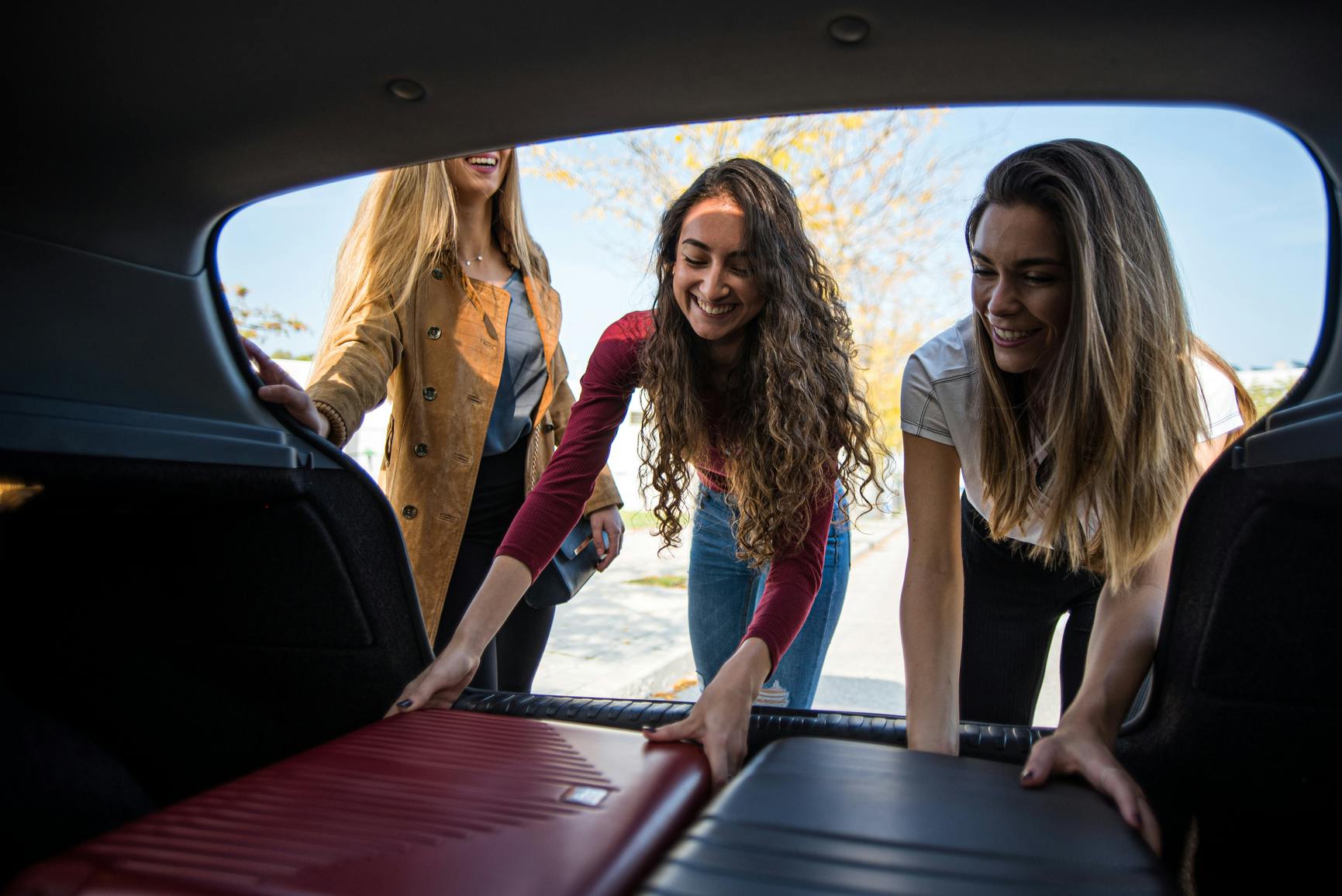How Will Connected Travel and Personalisation Revolutionise the Passenger Journey?

CAVU’s Roisin Evans and Simon Butterworth share their perspectives on technology’s role in driving greater convenience, real-time updates, and sustainability,
The future of connected travel hinges on the ability to create more personalised, seamless experiences for passengers.
As customer expectations shift towards greater convenience, real-time updates, and sustainability, CAVU’s Head of Customer Marketing, Roisin Evans and Chief Customer Officer, Simon Butterworth, discuss the role technology will play in meeting these demands.
From AI-driven personalisation to the integration of single-basket booking systems, this article explores the innovations that will reshape how passengers plan, book, and experience their journeys in 2025.
CAVU: In 2024, what changes have you observed in customer expectations when it comes to booking and managing their journeys?
Roisin: In 2024, customers are more cautious about spending and expect maximum value at every stage of their journey. Personalisation has become essential, with seamless, lifecycle-driven experiences powered by first-party data now a standard expectation. Generic marketing no longer works—customers demand tailored, multi-channel communication that makes them feel understood and valued.
Frictionless journeys and excellent customer service are now critical, with people expecting to be recognised and have their information accessible throughout their interactions. Inspirational and engaging content has also grown in importance, as customers increasingly seek experiences that are both easy and meaningful.
To meet these expectations, businesses must demonstrate value, leverage data effectively, and deliver consistent, personalised interactions. Those that do will not only meet but exceed customer expectations, building long-term loyalty.
Simon: Customers now expect a much higher degree of personalisation in their booking experiences. They want platforms to recognise their preferences from previous journeys and offer tailored suggestions.
Convenience is more important than ever—everything needs to be quick, seamless, and intuitive. They’ve also become more reliant on real-time updates; whether it’s information about delays, gate changes, or alternative options, they expect to be informed immediately.
Sustainability is also playing a much bigger role. Many actively look for options that align with their values, such as carbon-neutral flights or greener modes of transport. It’s not just about the convenience of travel anymore; customers want to feel like they’re making responsible choices.

CAVU: How do you envision single-basket booking transforming the way passengers plan and manage their journeys in 2025?
Roisin: The single-basket booking is set to significantly improve how passengers plan and manage their journeys by addressing a common pain point—overwhelm. Many travellers currently spend hours searching multiple websites to piece together travel products that meet their needs. For most, this process feels stressful and time-consuming, even though a few may enjoy the detailed planning.
Single-basket booking simplifies this experience by allowing passengers to combine all their travel essentials into a single, seamless transaction. This approach not only streamlines the planning process but also ensures the experience is tailored to individual preferences, with the flexibility to add relevant products that enhance the journey. It prioritises convenience and a smoother, stress-free experience.
For passengers, this results in reduced stress, easier choices, and a more enjoyable booking process. For businesses, it creates opportunities to offer more personalised options, increase transaction value, and boost profitability while fostering customer loyalty through an efficient and user-friendly booking journey.
Simon: Single-basket booking will simplify the entire journey experience. Passengers won’t need to jump between different platforms or providers to organise their trip—it’ll all be in one place. For example, you could book your flight, hotel, airport parking, and even add extras like meals or lounge access, all at the same time.
This doesn’t just save time; it creates a much more cohesive experience. If there are disruptions, the single-basket system could automatically reconfigure all the different elements of the journey—changing hotel bookings or transport arrangements to align with updated flight schedules, for instance, giving passengers greater confidence and control when they’re making travel plans.

CAVU: How do you see technology’s role in connected travel evolving in 2025?
Roisin: In 2025, technology will be pivotal in shaping the future of connected travel, combining data-driven insights with human-centred design to deliver seamless and personalised experiences. Tools like chatbots, virtual assistants, and AI-driven personalised content will evolve further, enabling brands to analyse customer data more effectively and engage meaningfully across digital channels.
Advanced technologies such as AI, machine learning, and predictive modelling will be critical for managing the complexity of customer needs at scale.
These tools will allow businesses to predict behaviour, recommend relevant products, and personalise interactions based on individual preferences, ensuring that every touchpoint feels tailored and intuitive.
By leveraging these advancements, businesses can create connected travel experiences that are smarter, more seamless, and deeply aligned with the expectations of modern travellers.
Simon: Technology is going to make travel even more seamless by breaking down the barriers between different parts of the journey. AI will play a huge role here, helping to predict disruptions before they happen and offering real-time alternatives. We’re also going to see more integration between different travel providers so passengers can move between them effortlessly.
I think biometrics will also become more widespread, making check-in and security processes faster and more secure. The aim will be to create a connected travel ecosystem where every part of the journey is linked, and passengers can move through it with minimal friction.

CAVU: What opportunities do you see for more connected customer experiences in 2025, and what role can CAVU play in bringing this to life?
Roisin: The key to creating more connected customer experiences lies in breaking down data and system silos to deliver a seamless and unified journey across all touchpoints. Customers don’t see fragmented systems—they see one brand and expect consistent, cohesive interactions, whether online or offline.
Achieving this requires a deep understanding of the end-to-end customer journey and leveraging technologies like AI-driven personalisation and predictive insights. By building a single customer view and analysing data in real-time, businesses can anticipate needs, offer tailored recommendations, and proactively resolve pain points.
CAVU’s journey is to truly understand passengers and utilise technology and data to reduce fragmentation to deliver truly omnichannel experiences. By prioritising data privacy and transparency, CAVU aims to ensure that customer trust is maintained while leveraging cutting-edge solutions to create experiences that are connected and engaging.
Simon: One of the biggest opportunities is creating a connected experience, where customers feel supported at every stage of their journey. This could include things like proactive communication when there are delays, seamless handoffs between different service providers, or the ability to easily make changes to bookings on the go.
CAVU can play a central role in making this a reality. We already have the technology to connect these different pieces of the puzzle; the next step is bringing them together in a way that feels effortless for the customer. By focusing on personalisation, real-time updates, and sustainability, CAVU can help create a travel experience that’s not just efficient but genuinely enjoyable.

Transform the Travel Experience with Propel
The integration of technology and personalisation will be key to staying competitive and meeting customer expectations in 2025.
With AI-driven solutions, seamless journey management, and a unified approach to data, the opportunities for revolutionising passenger experiences are endless.
Propel, our eCommerce platform, has been designed to help you bring these forward-thinking ideas to life. By combining advanced technology with customer-centric design, Propel makes it easier for you to create more connected, personalised, and frictionless experiences for your passengers.
Whether you’re looking to simplify bookings, improve service delivery, or improve operational efficiency, Propel is the tool you need to transform your business in 2025.
Book a demo and discover how Propel can help you unlock new possibilities in connected travel.